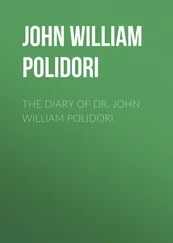John Evelyn - The Diary of John Evelyn (Volume 2 of 2)
Здесь есть возможность читать онлайн «John Evelyn - The Diary of John Evelyn (Volume 2 of 2)» — ознакомительный отрывок электронной книги совершенно бесплатно, а после прочтения отрывка купить полную версию. В некоторых случаях можно слушать аудио, скачать через торрент в формате fb2 и присутствует краткое содержание. Жанр: История, foreign_antique, foreign_prose, на английском языке. Описание произведения, (предисловие) а так же отзывы посетителей доступны на портале библиотеки ЛибКат.
- Название:The Diary of John Evelyn (Volume 2 of 2)
- Автор:
- Жанр:
- Год:неизвестен
- ISBN:нет данных
- Рейтинг книги:5 / 5. Голосов: 1
-
Избранное:Добавить в избранное
- Отзывы:
-
Ваша оценка:
- 100
- 1
- 2
- 3
- 4
- 5
The Diary of John Evelyn (Volume 2 of 2): краткое содержание, описание и аннотация
Предлагаем к чтению аннотацию, описание, краткое содержание или предисловие (зависит от того, что написал сам автор книги «The Diary of John Evelyn (Volume 2 of 2)»). Если вы не нашли необходимую информацию о книге — напишите в комментариях, мы постараемся отыскать её.
The Diary of John Evelyn (Volume 2 of 2) — читать онлайн ознакомительный отрывок
Ниже представлен текст книги, разбитый по страницам. Система сохранения места последней прочитанной страницы, позволяет с удобством читать онлайн бесплатно книгу «The Diary of John Evelyn (Volume 2 of 2)», без необходимости каждый раз заново искать на чём Вы остановились. Поставьте закладку, и сможете в любой момент перейти на страницу, на которой закончили чтение.
Интервал:
Закладка:
6th June, 1666. Came Sir Daniel Harvey from the General and related the dreadful encounter, on which his Majesty commanded me to dispatch an extraordinary physician and more chirurgeons. It was on the solemn Fast-day when the news came; his Majesty being in the chapel made a sudden stop to hear the relation, which being with much advantage on our side, his Majesty commanded that public thanks should immediately be given as for a victory. The Dean of the chapel going down to give notice of it to the other Dean officiating; and notice was likewise sent to St. Paul's and Westminster Abbey. But this was no sooner over, than news came that our loss was very great both in ships and men; that the Prince frigate was burnt, and as noble a vessel of ninety brass guns lost; and the taking of Sir George Ayscue, and exceeding shattering of both fleets; so as both being obstinate, both parted rather for want of ammunition and tackle than courage; our General retreating like a lion; which exceedingly abated of our former joy. There were, however, orders given for bonfires and bells; but, God knows, it was rather a deliverance than a triumph. So much it pleased God to humble our late overconfidence that nothing could withstand the Duke of Albemarle, who, in good truth, made too forward a reckoning of his success now, because he had once beaten the Dutch in another quarrel; and being ambitious to outdo the Earl of Sandwich, whom he had prejudicated as deficient in courage.
7th June, 1666. I sent more chirurgeons, linen, medicaments, etc., to the several ports in my district.
8th June, 1666. Dined with me Sir Alexander Fraser, prime physician to his Majesty; afterward, went on board his Majesty's pleasure-boat, when I saw the London frigate launched, a most stately ship, built by the City to supply that which was burnt by accident some time since; the King, Lord Mayor and Sheriffs, being there with great banquet.
11th June, 1666. Trinity Monday, after a sermon, applied to the remeeting of the Corporation of the Trinity-House, after the late raging and wasting pestilence: I dined with them in their new room in Deptford, the first time since it was rebuilt.
15th June, 1666. I went to Chatham. – 16th. In the Jemmy yacht (an incomparable sailer) to sea, arrived by noon at the fleet at the Buoy at the Nore, dined with Prince Rupert and the General.
17th June, 1666. Came his Majesty, the Duke, and many Noblemen. After Council, we went to prayers. My business being dispatched, I returned to Chatham, having lain but one night in the Royal Charles; we had a tempestuous sea. I went on shore at Sheerness, where they were building an arsenal for the fleet, and designing a royal fort with a receptacle for great ships to ride at anchor; but here I beheld the sad spectacle, more than half that gallant bulwark of the kingdom miserably shattered, hardly a vessel entire, but appearing rather so many wrecks and hulls, so cruelly had the Dutch mangled us. The loss of the Prince, that gallant vessel, had been a loss to be universally deplored, none knowing for what reason we first engaged in this ungrateful war; we lost besides nine or ten more, and near 600 men slain and 1,100 wounded, 2,000 prisoners; to balance which, perhaps we might destroy eighteen or twenty of the enemy's ships, and 700 or 800 poor men.
18th June, 1666. Weary of this sad sight, I returned home.
2d July, 1666. Came Sir John Duncomb and Mr. Thomas Chicheley, both Privy Councillors and Commissioners of His Majesty's Ordnance, to visit me, and let me know that his Majesty had in Council, nominated me to be one of the Commissioners for regulating the farming and making of saltpetre through the whole kingdom, and that we were to sit in the Tower the next day. When they were gone, came to see me Sir John Cotton, heir to the famous antiquary, Sir Robert Cotton: a pretended great Grecian, but had by no means the parts, or genius of his grandfather.
3d July, 1666. I went to sit with the Commissioners at the Tower, where our commission being read, we made some progress in business, our Secretary being Sir George Wharton, that famous mathematician who wrote the yearly Almanac during his Majesty's troubles. Thence, to Painters' Hall, to our other commission, and dined at my Lord Mayor's.
4th July, 1666. The solemn Fast-day. Dr. Meggot preached an excellent discourse before the King on the terrors of God's judgments. After sermon, I waited on my Lord Archbishop of Canterbury and Bishop of Winchester, where the Dean of Westminster spoke to me about putting into my hands the disposal of fifty pounds, which the charitable people of Oxford had sent to be distributed among the sick and wounded seamen since the battle. Hence, I went to the Lord Chancellor's to joy him of his Royal Highness's second son, now born at St. James's; and to desire the use of the Star-chamber for our Commissioners to meet in, Painters' Hall not being so convenient.
12th July, 1666. We sat the first time in the Star-chamber. There was now added to our commission Sir George Downing (one that had been a great … against his Majesty, but now insinuated into his favor; and, from a pedagogue and fanatic preacher, not worth a groat, had become excessively rich), to inspect the hospitals and treat about prisons.
14th July, 1666. Sat at the Tower with Sir J. Duncomb and Lord Berkeley, to sign deputations for undertakers to furnish their proportions of saltpetre.
LONDON17th July, 1666. To London, to prepare for the next engagement of the fleets, now gotten to sea again.
22d July, 1666. Our parish still infected with the contagion.
25th July, 1666. The fleets engaged. I dined at Lord Berkeley's, at St. James's, where dined my Lady Harrietta Hyde, Lord Arlington, and Sir John Duncomb.
29th July, 1666. The pestilence now fresh increasing in our parish, I forbore going to church. In the afternoon came tidings of our victory over the Dutch, sinking some, and driving others aground, and into their ports.
1st August, 1666. I went to Dr. Keffler, who married the daughter of the famous chemist, Drebbell, 4 4 Cornelius Van Drebbell, born at Alkmaar, in Holland, in 1572; but in the reign of Charles I. settled in London, where he died in 1634. He was famous for other discoveries in science besides that mentioned by Evelyn – the most important of which was the thermometer. He also made improvements in microscopes and telescopes; and though, like many of his scientific contemporaries, something of an empiric, possessed a considerable knowledge of chemistry and of different branches of natural philosophy.
inventor of the bodied scarlet. I went to see his iron ovens, made portable (formerly) for the Prince of Orange's army: supped at the Rhenish Wine-House with divers Scots gentlemen.
6th August, 1666. Dined with Mr. Povey, and then went with him to see a country house he had bought near Brentford; returning by Kensington; which house stands to a very graceful avenue of trees, but it is an ordinary building, especially one part.
8th August, 1666. Dined at Sir Stephen Fox's with several friends and, on the 10th, with Mr. Odart, Secretary of the Latin tongue.
17th August, 1666. Dined with the Lord Chancellor, whom I entreated to visit the Hospital of the Savoy, and reduce it (after the great abuse that had been continued) to its original institution for the benefit of the poor, which he promised to do.
25th August, 1666. Waited on Sir William D'Oyly, now recovered, as it were, miraculously. In the afternoon, visited the Savoy Hospital, where I stayed to see the miserably dismembered and wounded men dressed, and gave some necessary orders. Then to my Lord Chancellor, who had, with the Bishop of London and others in the commission, chosen me one of the three surveyors of the repairs of Paul's, and to consider of a model for the new building, or, if it might be, repairing of the steeple, which was most decayed.
Читать дальшеИнтервал:
Закладка:
Похожие книги на «The Diary of John Evelyn (Volume 2 of 2)»
Представляем Вашему вниманию похожие книги на «The Diary of John Evelyn (Volume 2 of 2)» списком для выбора. Мы отобрали схожую по названию и смыслу литературу в надежде предоставить читателям больше вариантов отыскать новые, интересные, ещё непрочитанные произведения.
Обсуждение, отзывы о книге «The Diary of John Evelyn (Volume 2 of 2)» и просто собственные мнения читателей. Оставьте ваши комментарии, напишите, что Вы думаете о произведении, его смысле или главных героях. Укажите что конкретно понравилось, а что нет, и почему Вы так считаете.












